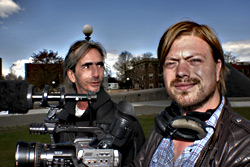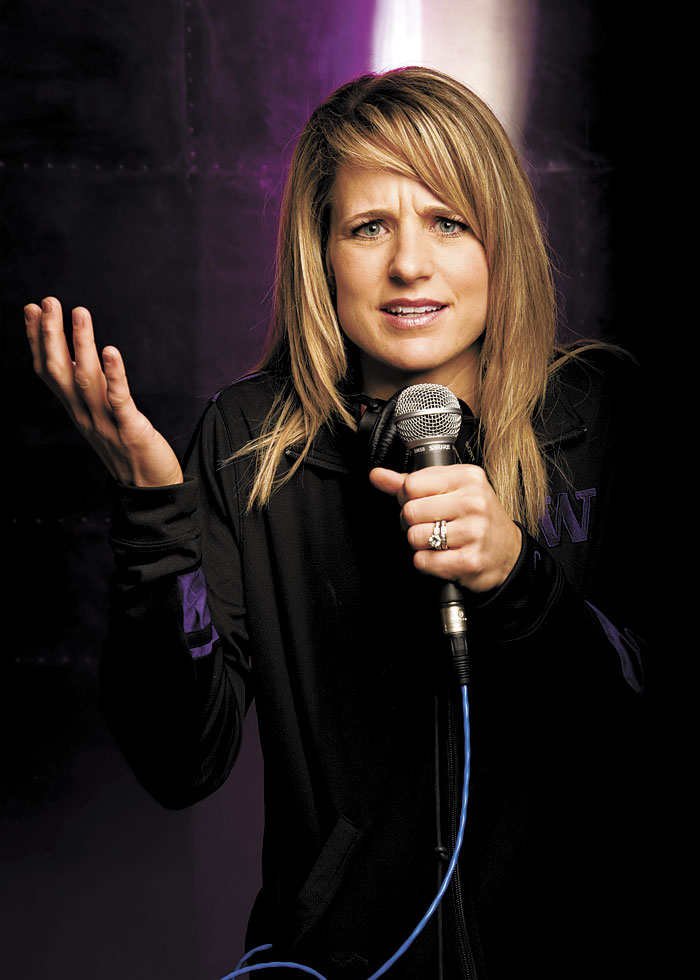The second documentary by local director Linas Phillips to reach SIFF, Great Speeches From a Dying World doesn’t have statistics. It doesn’t have experts, hand-wringing, or pundits. But Phillips says his subjects, our city’s homeless, should speak for themselves. (See review, with showtimes.) His prior Walking to Werner (at SIFF ’06) followed his 1,200-mile foot journey from Seattle to L.A. to meet Werner Herzog. It was a candid and not always flattering self-portrait of the obsessive young filmmaker, who was raised and educated back east and has been living in Seattle off-and-on since 2004. Like that film, Great Speeches is about honesty in its harshest form.
Phillips spent some two years getting to know his 10 subjects as he filmed. As he admits, there’s no context beyond his close, intimate frame: “I realize that it’s a little skewed, because it doesn’t show the [homeless] services that are out there . . . but you kinda get a sense of them. It’s not a film about the services. It’s a film about the people. Why waste time on someone else?”
(Alison Eisinger, director of the Seattle/King County Coalition for the Homeless, estimates there are some 2,600 people living on our streets without shelter, some of whom you’ll recognize in the film from Pioneer Square and Lower Queen Anne.)
As the occasional narrator and interlocutor in Great Speeches, Phillips is clearly sympathetic toward his subjects, who speak candidly about struggles with substance abuse and mental illness. It’s easy to see why when we meet at Caffé Vita on Capitol Hill: He’s a big, blonde open-faced dude—a kid-brother type. It’s pretty hard not to like the guy.
This was critical to his working method, he recalls: “You’re going up to people and basically saying, ‘Hey, I want to interview you because it looks like your life is fucked up.'”
Despite the inherent awkwardness of the situation, Phillips succeeds in getting these people to open up. He follows them from open-air camps to Aurora crack motels to transitional housing. And he literally puts words in their mouths, having them read texts from John Donne to Martin Luther King (hence the film’s title).
Phillips explains, “I wanted to say something political, to show they have this dignity, but without being too preachy . . . It’s almost a more spiritual telling of where we are in our society. The speeches are slightly political, but they’re more of a moral nature.”
And if the film provides no outside voices like Eisinger’s, no context, no sense of how Seattle compares to other cities in its homeless population and policies, Phillips seems unconcerned. This is a personal documentary, after all, not an episode of Frontline. This is a guy who is clearly not afraid to look a little naive in person or on film, so long as the audience benefits.
“This is something Werner Herzog taught me,” says Phillips. (The two finally met after Walking to Werner.) “Be straightforward and clear with people. Even if you don’t have it figured out, tell them, ‘I don’t have this figured out, but I’m curious about listening to your story.'”






